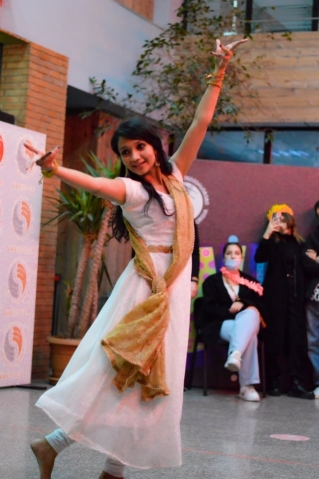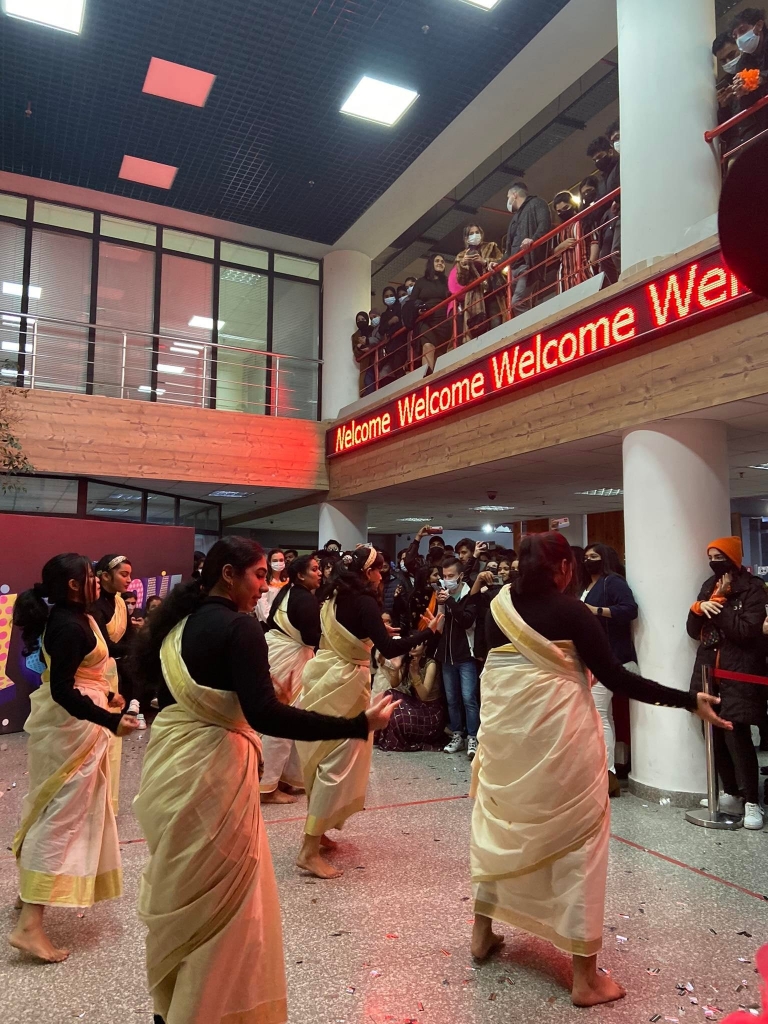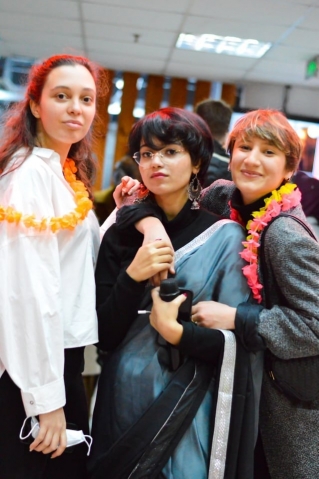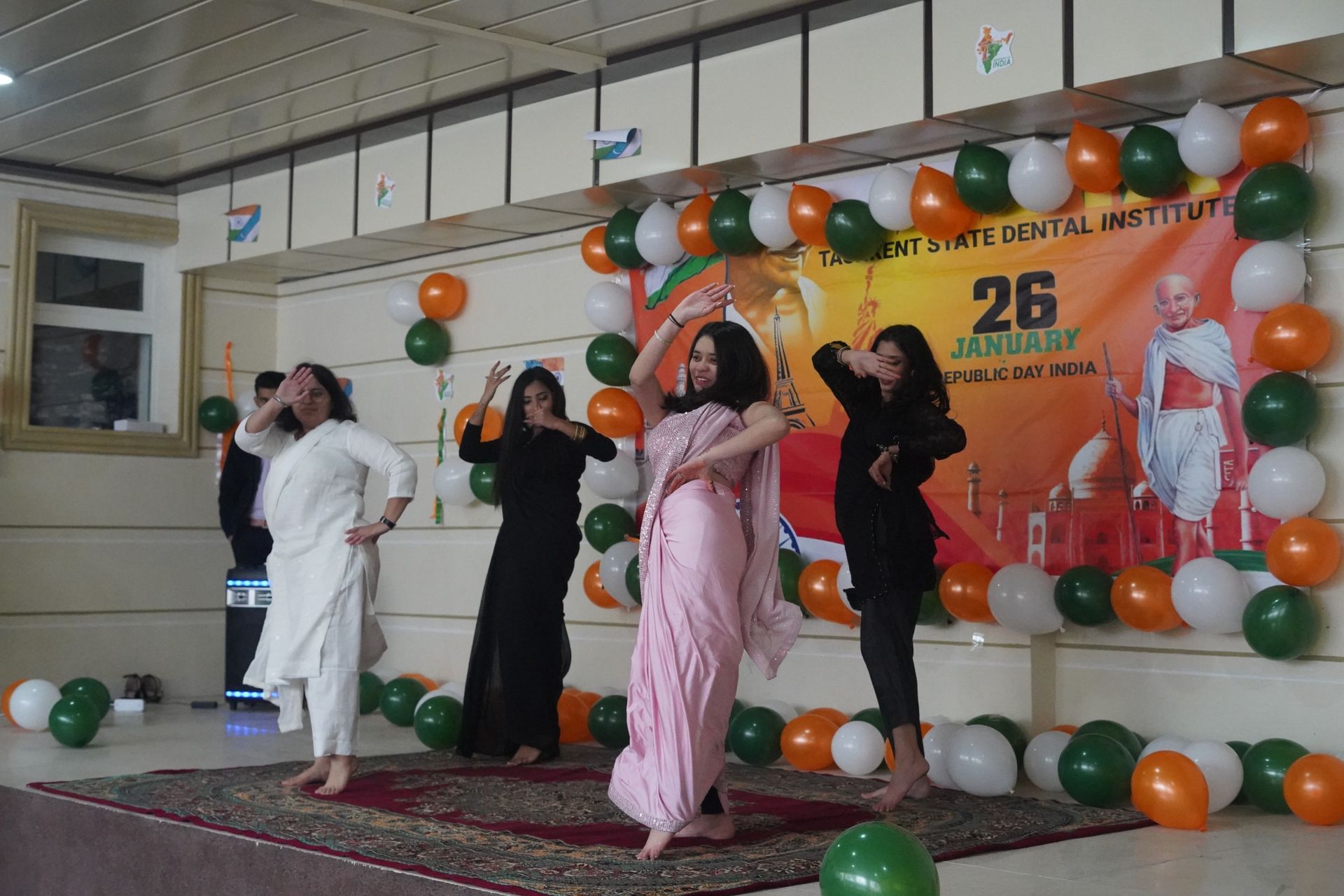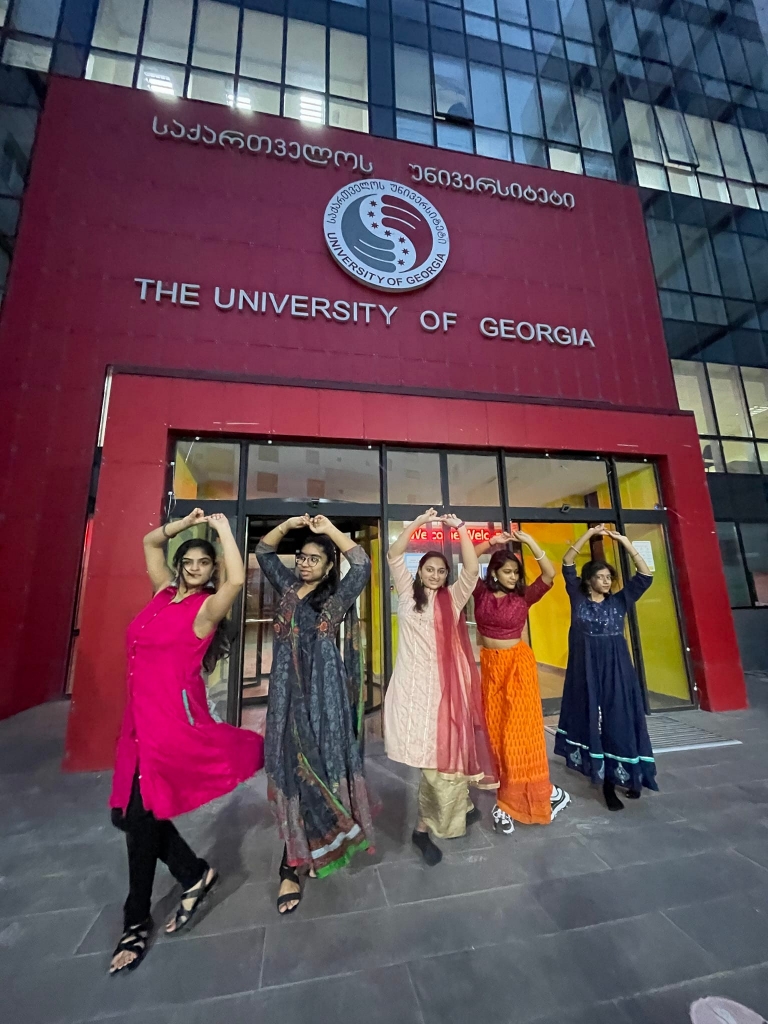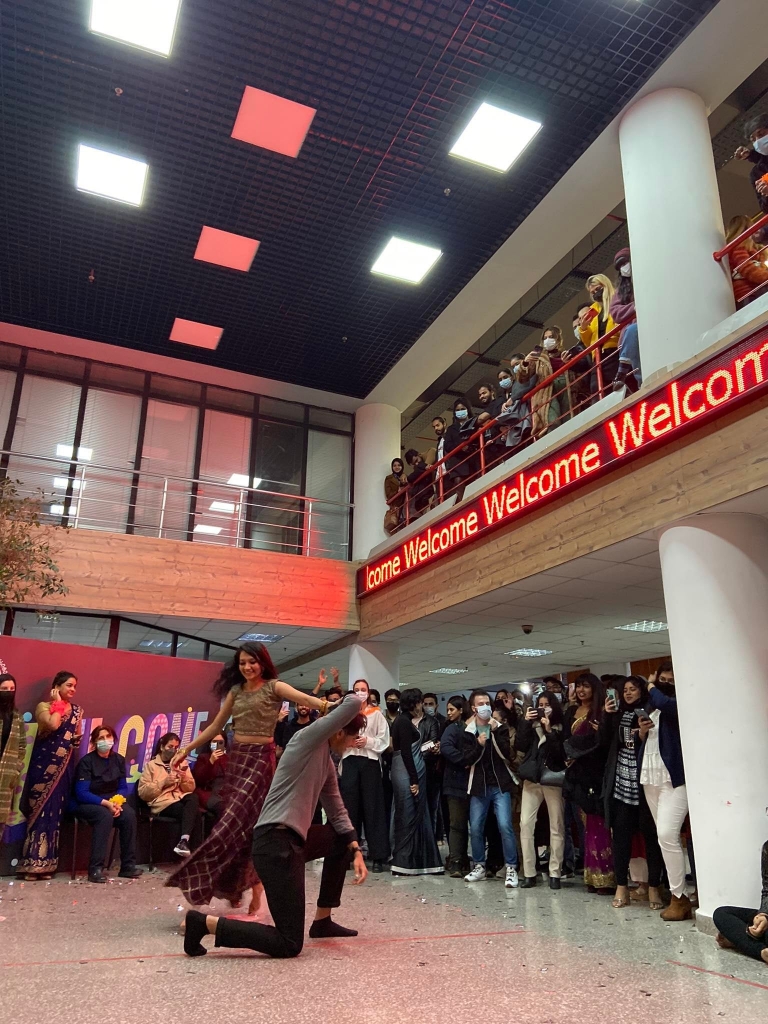University Of Georgia
The best University for Indian Students to Study MBBS In Georgia.
Apply Now
About University Of Georgia , Tbilisi
Located in Tbilisi, Georgia, the University of Georgia (UG) is one of the largest private universities in the country, with more than 8000 local and international students. The University has accredited programs on three levels of higher education (Bachelor, Master and PhD) in English and Georgian languages.
According to the latest university rankings published by the international organization – Webometrics, which ranks universities worldwide according to scientific research and scientific activity on the web, the University of Georgia is the highest-ranking private university in Georgia. Moreover, it in the top 7 of the regional educational institutions.

UG is distinguished by the disciplined educational process and modern infrastructure, enabling its students to acquire quality education and practical skills. For this reason, graduates of the University of Georgia always benefit from superior employment prospects.
Offering thought provoking and diverse set of disciplines, UG is the place where knowledge is created and acquired. The academic personnel of the University is staffed with highly qualified, well-experienced and creative professionals dedicated to teaching creatively and with enthusiasm, helping raise young professionals with demonstrated commitment to the public.
UG is proud of its diverse community with cross cultural awareness. Its multicultural environment shapes intelligent, educated individuals with human values capable to meet modern challenges. The objective of the University of Georgia, being one of the leading universities, is to encourage the personal development of each student and mold her/him as a highly qualifies professional.
Indian Students At University Of Georgia
The University Of Georgia - MBBS
| Program name: | Medicine |
| Study Level: | Single-Cycle Degree Program |
| Program leader: | Natia Landia |
| Study language: | English |
| Qualification: | Medical Doctor |
| Program capacity: | 360 |
| Program permission: | English language B2 and other legislative requirements, namely citizens of Georgia should successfully pass Unified National Entrance Examinations. Foreign high-school graduates who received complete general education abroad or its equivalent and the last two years of complete general education had studied abroad or students who lived abroad for the last two or more years and who are currently studying abroad in higher educational institutions recognized by the legislation of the host countries will be able to enter the program without passing Uniform Unified National Entrance Examinations according to Order №224/N of the Minister of Education and Science of Georgia (December 29, 2011). If applicant does not hold a certificate his/her level of English language knowledge is established by the university exam. Minimum threshold of 60%. Admission exam/interview in Biology-Chemistry-Physics (Basic Issues); |
| Program goals: | The aim of the program is to prepare competent, compassionate, just, experienced medical doctors, who will possess necessary theoretical knowledge, practical skills and values, defined by descriptor of competences of medical education in Georgia and by learning objectives of basic medical education by TUNING/MEDINE project, which will enable them to successfully continue medical education, enroll in Masters and Doctoral programs, apply for clinical positions of junior doctor, participate in scientific and academic activities in Georgia, as well as in other countries; graduates of the course will be ready to continuously improve their knowledge and skills, and with their professional work facilitate improvement of health and wellbeing of local communities as well as global society |
| Methods for Attaining Learning Outcomes: | • Lecture |
| Learning outcomes: | Outcomes Knowledge and understanding ·Deep and systematic knowledge of biomedical sciences
·Knowledge and understanding of the basic principles, processes, methods and general concepts of behavioral and social sciences.
·Broad knowledge of clinical sciences in various medical specialties and subspecialties, including critical understanding of theories and principles and some of the latest aspects of knowledge.
·Broad knowledge of medicines and their appointment, which includes a critical understanding of theories and principles, and some of the latest aspects of knowledge.
·Broad knowledge of public health: disease prevention and health promotion, disease screening and supervision, epidemiology, resource allocation and health economics, global health and inequality.
·Broad knowledge of ethical and legal principles related to medical practice and research, including critical understanding of theories and principles, and some of the latest aspects of knowledge.
· Knowledge of organizing healthcare organizations and systems and understanding the role of the physician in this system
Skills Carry out a consultation with a patient
Assess clinical presentations, order investigations, make differential diagnoses, and negotiate a management plan
Providing first aid in emergency medical situations (First aid and resuscitation measures)
Drug prescription
Conducting Practical Procedures
Communicate effectively in a medical context
The use of Ethic and Legal Principles in Medical Practice
Evaluation of psychological and social aspects regarding patients’ disease.
The use of knowledge, skills and principles based on evidence
Use information and information technology effectively in a medical context
Ability to apply scientific principles, method and knowledge to medical practice and research
Implementation of health promoting events, engage with public healthcare issues, efficient performance within the healthcare system
Professionalism
Responsibility and autonomy Appreciate the necessity of lifelong learning and continuous professional development in medical profession
Use ethical, legal principals and protect patients’ rights
Communicate, Negotiate and resolve conflicts in professional context with anyone, despite their social, cultural, religious or ethnic affiliation
Establish relationships with patients and colleagues based on equality, social and liberal values |
| Program details: | The program has 360 ECTS and includes 6 years of teaching. It consists of compulsory (326 ECTS) and optional (34 ECTS) components, 12 –of which are for language components. |
| Teaching Process Characteristics: | The program consists of theoretical and laboratory teaching, as well as practice, which is implemented within the courses based on the thematic direction. Theoretical lectures can be concurrently conducted in two and more groups. A semester offers clinical rotations of medical profiles that consider daily and intensive teaching and is organized as in the university campus as well as in the affiliated medical institutions. The students’ number in laboratory and practical groups is not more than 15. The practical training is conducted using mentor system, as for the evaluation of clinical and professional skills the structured (integrated) evaluation system in simulation and clinical setting is used. International students must choose the Georgian language with total of 12 credits, from the block of mandatory elective subjects. If they choose a 6-credit Georgian language subject, it is taken once a year, during the fall or spring semester, which must be completed before the start of clinical studies. Georgian-speaking students, from the block of mandatory elective subjects, mandatorily choose the English language a total of 12 credits, once a year, in the fall or spring semester. |
Program Core
| Code | Subject | ECTS | Semester |
| MD231110E | Human Body - Structure and Function I | 10 | 1 |
| MD231120E | Biochemistry I | 4 | 1 |
| MD231130E | Genetics and Molecular biology I | 3 | 1 |
| MD231140E | Introduction to Medical Profession | 2 | 1 |
| MEDE1125E | English for Medics | 5 | 1 |
| HELM231250E | Introduction to Public Health | 2 | 2 |
| MD231210E | Human Body - Structure and Function II | 10 | 2 |
| MD231220E | Biochemistry II | 4 | 2 |
| MD231230E | Genetics and molecular biology II | 3 | 2 |
| MD231240E | Basic Microbiology and Bacteriology | 4 | 2 |
| MD231290E | Clinical Skills I | 4 | 2 |
| HELM232150E | Fundamentals of Bioethics and Medical law | 3 | 3 |
| MD232110E | Human Body - Structure and Function III | 10 | 3 |
| MD232120E | Biochemistry III | 4 | 3 |
| MD232130E | Ecology and General Hygiene | 3 | 3 |
| MD232140E | Virology, Mycology and Parasitology | 3 | 3 |
| MD232190E | Research Skills I | 4 | 3 |
| MD232210E | Human Body - Structure and Function IV | 10 | 4 |
| MD232220E | Biochemistry IV | 4 | 4 |
| MD232230E | Fundamentals of Pathology | 5 | 4 |
| MD232240E | Immunology and Medical Microbiology | 4 | 4 |
| MD232290E | Clinical Skills II | 4 | 4 |
| HELM233150E | Epidemiology, Biostatistics and Public Health | 6 | 5 |
| MD233110E | Clinical Pathology I | 6 | 5 |
| MD233120E | Basics of Disease and Diagnosis I | 7 | 5 |
| MD233130E | Sociology of health and disease | 3 | 5 |
| MD233140E | Basic pharmacology I | 5 | 5 |
| MD233210E | Clinical Pathology II | 6 | 6 |
| MD233220E | Basics of Disease and Diagnosis II | 7 | 6 |
| MD233240E | Basic pharmacology II | 5 | 6 |
| MD233250E | Fundamentals of Radiology | 4 | 6 |
| MD233260E | Research Skills II | 2 | 6 |
| nMD233230E | Introduction to psychology for medical professions | 3 | 6 |
Credits sum: | 159 |
Program Elective
| Code | Subject | ECTS | |
| HELM2287E | Marketing of Public Health | 6 | |
| HELM231320E | Health Promotion | 3 | |
| HELM233321E | Introduction to Healthcare Database Planning and Management | 6 | |
| HELM233330E | Healthcare Informatics | 3 | |
| HELM233341E | Medical Tourism and Telemedicine | 6 | |
| HELM234150E | SPSS: Data Analysis and Formation in Healthcare | 3 | |
| MD236311E | Pharmacotherapy | 4 | |
| MD236320E | Practice in Laboratory Medicine | 3 | |
| MD236331E | Modern Ophthalmology | 4 | |
| MD236340E | Reproductive Medicine | 5 | |
| MD236350E | Family medicine, advanced course | 5 | |
| MD236360E | Trauma in Emergency Medicine | 5 | |
| MD236370E | Cardiovascular Surgery | 5 | |
Credits sum: | 58 |
Mandatory Elective
| Code | Subject | ECTS | |
| ENGL1330 | English for Medics (communication with Patient) | 6 | |
| ENGL1340 | English for Medics( Hospital Clinic) | 6 | |
| KART1119 | Georgian I | 3 | |
| KART1219 | Georgian II | 3 | |
| KART2119 | Georgian III | 3 | |
| KART2219 | Georgian IV | 3 | |
| ENGL1110E | General English I | 6 | |
| ENGL1120E | General English II | 6 | |
| KART1141 | Georgian, as a second language I | 6 | |
| KART1241 | Georgian, as a second language II | 6 | |
Credits sum: | 48 |
| Code | Subject | ECTS | Semester |
| MD234110E | Internal Medicine I | 14 | 7 |
| MD234120E | Surgery I | 14 | 7 |
| MD234130E | Introduction to family medicine | 2 | 7 |
| MD234210E | Obstetrics | 6 | 8 |
| MD234220E | Neurology | 8 | 8 |
| MD234240E | Traumatology and Orthopaedics | 4 | 8 |
| MD234250E | Dermatology | 2 | 8 |
| MD234260E | Infectious Diseases | 6 | 8 |
| nMD234230E | Haematology, transfusiology | 4 | 8 |
| MD235110E | Internal Medicine II | 14 | 9 |
| MD235120E | Paediatrics | 8 | 9 |
| MD235130E | Gynaecology | 8 | 9 |
| MD235210E | Surgery II | 10 | 10 |
| MD235220E | Anaesthesiology and Rheumatology | 6 | 10 |
| MD235240E | Emergency Medicine | 6 | 10 |
| nMD235230E | Psychiatry and Clinical Psychology | 8 | 10 |
| HELM232210E | Health Care Management | 6 | 11 |
| MD236120E | Clinical thinking, Differential diagnosis | 5 | 11 |
| MD236140E | Family Medicine | 6 | 11 |
| MD236150E | Clinical Pharmacology | 4 | 11 |
| MD236160E | Oncology | 4 | 11 |
| MD236170E | Palliative care | 2 | 11 |
| nMD236130E | Basics of Alternative Medicine | 3 | 11 |
| HELM236210E | Fundamentals of health care quality and patient safety | 6 | 12 |
| MD236220E | Small Clinical Research | 5 | 12 |
| MD236230E | Forensic Medicine | 4 | 12 |
| MD236280E | Clinical Skills III | 2 | 12 |
Credits sum: | 167 |
